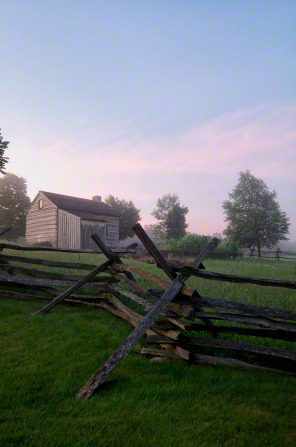
(Image from LDS Media Library)
From a rough manuscript of mine:
Another indication of the Prophet’s sincerity is the striking fact that his own family manifestly believed him.[1] “The parents and all living brothers and sisters of Joseph Smith believed his account of his visions. In fact, the two grandparents still alive in 1830 also believed.”[2] For example, the Joseph Smith Sr., the Prophet’s father, traveled two hundred miles—a significant and taxing journey in the frontier America of that period—to carry a copy of the Book of Mormon to his own father, Asael Smith, the Prophet’s grandfather, not long before Asael’s death in 1830. On the basis of what he regarded as divine revelation, Asael had long anticipated that some member of his family would be “raised up” as a benefit to humankind. In his eighty-eighth year, he recognized Joseph as the fulfillment of his own revelation.[3] Joseph Smith Sr., as Oliver Huntington later recalled, “leaned and relied upon his son Joseph in all spiritual matters as much as boys generally do upon their parents for temporalities.”[4] And here is Lucy Mack Smith’s description of life in the Smith household in the period immediately following the visit of Moroni:
From this time forth, Joseph continued to receive instructions from the Lord, and we continued to get the children together every evening, for the purpose of listening while he gave us a relation of the same. I presume our family presented an aspect as singular as any that ever lived upon the face of the earth—all seated in a circle, father, mother, sons, and daughters, and giving the most profound attention to a boy, eighteen years of age, who had never read the Bible through in his life.[5]
According to the 1875 testimony of Joseph’s younger brother, William Smith,
Joseph Smith, at the age of seventeen years, with the moral training he had received from strictly pious and religious parents, could not have conceived the idea in his mind of palming off a fabulous story, such as seeing angels, etc. . . .
There was not a single member of the family of sufficient age to know right from wrong but what had implicit confidence in the statements made by my brother Joseph concerning his vision and the knowledge he thereby obtained concerning the plates.
Father and mother believed him; why should not the children? I suppose if he had told crooked stories about other things, we might have doubted his word about the plates, but Joseph was a truthful boy. That father and mother believed his report and suffered persecution for that belief shows that he was truthful.[6]
Or, as William put the same point in 1884,
All believed it was true, father, mother, brothers and sisters. You can tell what a child is. Parents know whether their children are truthful or not. . . . Father knew his child was telling the truth.[7]
[1] “A prophet will always be held in honour,” said Jesus, with slight but realistic hyperbole, “except in his home town, , and among his kinsmen and family” (Mark 6:4 [NEB]; compare Matthew 13:57; Luke 4:24; John 4:44).
[2] Anderson, Joseph Smith’s New England Heritage, xiv-xv.
[3] Anderson, Joseph Smith’s New England Heritage, 148-149; also Black, Stories from the Early Saints, 2, where further references are given.
[4]$ Andrus and Andrus, They Knew the Prophet, 71.
[5] Lucy’s Book, 344
[6] Cited in Milton V. Backman, Jr., Joseph Smith’s First Vision: Confirming Evidences and Contemporary Accounts, 2d ed., revised and enlarged (Salt Lake City: Bookcraft, 1980), 149.
[7] “The Old Soldier’s Testimony,” a sermon preached by William B. Smith in the Saints’ Chapel at Deloit, Iowa, on 8 June 1884, and reported by C. E. Butterworth, in The Saint’s Herald 31 (1884): 643-644. See also William Smith, William Smith on Mormonism: A True Account of the Origin of the Book of Mormon (Lamoni, Iowa: Herald Steam Book and Job Office, 1883), 10-11. [See originals.]













